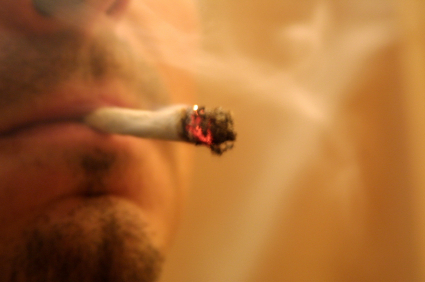
The Illinois legislature is debating a bill that would legalize cannabis in medicinal use. House of Representatives is considering HB 30 in the present legislative session.
The bill is sponsored by Lou Lang, a Democrat from Skokie. The bill would establish the Compassionate Use of Medical Cannabis Pilot Program. Any person with a debilitating medical condition would be eligible for a registry identification card from the Illinois Department of Public Health which would allow them to process up to 70 grams of cannabis for medicinal purposes.
The law allowing medicinal use of marijuana would change the DUI statute considerably.
At the present time, it is illegal to operate or be in actual physical control of a motor vehicle when “there is any amount of a drug, substance, or compound in the person’s breath, blood, or urine resulting from the unlawful use or consumption of cannabis listed in the Cannabis Control Act…” See 625 ILCS 5/11-501(a)(6).
A DUI charge under section 11-501(a)(6) would implicate a person as guilty for having any amount of cannabis in his blood breath or urine whatsoever. Even if the amount of cannabis was so small as to not cause any intoxicating effect whatsoever, the person would still be guilty of DUI. Many judges and lawyers refer to this as a “trace amount” of cannabis.
It is a “per se” law similar to the legal limit for alcohol concentration in a person’s blood or breath of 0.08. A person is guilty of driving under the influence of alcohol when his or her BAC is 0.08, regardless of whether that person is intoxicated or impaired.
Under either section of the DUI statute, the fact that the person feels sober is irrelevant. It is not a defense that the person was capable of driving perfectly.
In this respect, the trace amount DUI charge is unfair. It can result in innocent people being found guilty of crimes they did not commit. For example, if a person consumed cannabis a month before being pulled over by a law enforcement officer, but had a trace amount in his system, he would be guilty.
There is no question that in these cases, the statute does nothing to deter unsafe driving. For a law to have a deterrent effect, the consequences of violating it should follow immediately after the violation. It does no one good to punish drivers for something they did a month ago.
The trace amount DUI charge would change because people who are authorized to possess cannabis for medical uses would be allowed to drive under certain restrictions.
The bill proposes a new section 625 ILCS 5/11-501.9 to the Illinois vehicle code. The new section would prohibit a person who uses medicinal marijuana from operating a motor vehicle within 4 hours from having consumed medical cannabis.
After the 4-hour window, a person who is authorized to consume medical cannabis would be allowed to drive. However the DUI laws would treat that person differently from everyone else when it comes to a trace amount DUI charge.
Everyone else would still be guilty of trace amount DUI for having any amount of cannabis in their blood breath or urine. However, people who are authorized to consume medical cannabis could drive legally as long as the content of their urine and blood falls under a certain limit.
The law would prohibit medical marijuana users from driving if their urine contains 15 nanograms of cannabis per milliliter of urine, or when their blood contains 5 nanograms of cannabis per milliliter of blood. If the levels of cannabis exceed these limits, and the driver would be guilty of DUI under 11-501(a)(6).
In addition, the new bill imposes enhanced penalties for violations of these limits. Under the DUI statute as it applies to alcohol, if a driver has an alcohol concentration of 0.16 in his blood or breath, and he faces additional penalties such as 100 community service hours and a $1,250 fine on the first offense. On a second offense DUI with an alcohol concentration of 0.16, the defendant must be sentenced to two days jail.
The new bill proposes that if the urine content is 30 nanograms of cannabis per milliliter of urine, the defendant would be subject to the above penalties ($100 to the service, $1250 fine, and two days jail on the second offense). The same applies to instances where the driver’s blood contains 5 nanograms of cannabis per milliliter of blood.
It is interesting to note that the new bill specifically says that a police officer does not have reasonable suspicion or probable cause to believe that a vehicle code violation has taken place because the driver possesses a registry identification card under the Compassionate Use of Medical Cannabis Pilot Program Act.
The House of Representatives is currently debating this bill. It is likely to draw a lot of publicity and criticism. I give credit to Representative Lang for pushing Illinois law in the right direction. It is time that the trace amount DUI charge is repealed, and our courts acknowledge that technology allows us to determine whether a person is impaired by cannabis. Our courts should not have to rely on a per se law that penalizes people for acts that happened a month earlier.

